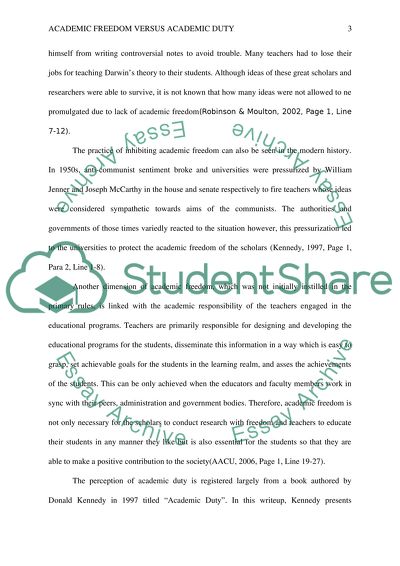Cite this document
(“How do you define Academic Freedom and Academic Duty. How might these Essay”, n.d.)
How do you define Academic Freedom and Academic Duty. How might these Essay. Retrieved from https://studentshare.org/education/1626609-how-do-you-define-academic-freedom-and-academic-duty-how-might-these-concepts-contrast-and-what-are-some-of-the-dilemmas-that-may-arise-as-a-result
How do you define Academic Freedom and Academic Duty. How might these Essay. Retrieved from https://studentshare.org/education/1626609-how-do-you-define-academic-freedom-and-academic-duty-how-might-these-concepts-contrast-and-what-are-some-of-the-dilemmas-that-may-arise-as-a-result
(How Do You Define Academic Freedom and Academic Duty. How Might These Essay)
How Do You Define Academic Freedom and Academic Duty. How Might These Essay. https://studentshare.org/education/1626609-how-do-you-define-academic-freedom-and-academic-duty-how-might-these-concepts-contrast-and-what-are-some-of-the-dilemmas-that-may-arise-as-a-result.
How Do You Define Academic Freedom and Academic Duty. How Might These Essay. https://studentshare.org/education/1626609-how-do-you-define-academic-freedom-and-academic-duty-how-might-these-concepts-contrast-and-what-are-some-of-the-dilemmas-that-may-arise-as-a-result.
“How Do You Define Academic Freedom and Academic Duty. How Might These Essay”, n.d. https://studentshare.org/education/1626609-how-do-you-define-academic-freedom-and-academic-duty-how-might-these-concepts-contrast-and-what-are-some-of-the-dilemmas-that-may-arise-as-a-result.


